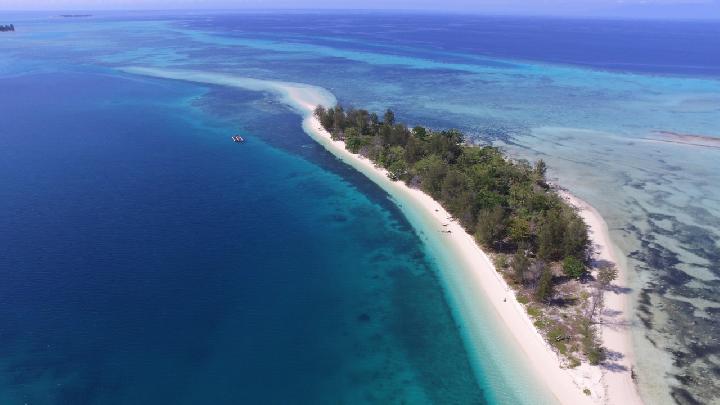Since 2018, activists have raised the alarm: island privatization Indonesia is unfolding quietly but steadily, fuelled by opaque policies and questionable land deals. The People’s Coalition for Fishery Justice, known as KIARA, has documented a surge in private ownership of small islands and coastal areas, often without proper transparency or meaningful community consultation. This article delves into what is happening, how communities are affected, and what reforms could restore justice.
Rising Trend of Island Privatization Indonesia
KIARA’s investigation, spanning several years, reveals that island privatization Indonesia began within a regulatory framework dating back to 2016. Ministerial Regulation No. 17 of 2016 enabled entities, individuals or corporations—to acquire up to 70 percent of a small island’s area, reserving only 30 percent for public space.
Language in the regulation even threatened traditional coastal communities by allowing large sections of an island to be privatized. KIARA highlights specific cases: small islands like Pulau Pari in the Seribu archipelago and Pulau Sangiang near Banten have seen significant portions transferred to private developers, sometimes resulting in commercialization for resorts and mining.
This trend shows that behind island privatization Indonesia lies much more than isolated transactions. It represents a systematic shift enabled by legal loopholes.
Impact on Coastal Communities and Fisherfolk
Communities dependent on the sea for support are losing access. KIARA points out that when islands become privatized, fishermen lose traditional routes, access to safe anchor zones, and bases for daily operations. In the Seribu Islands, nearly 3,375 fishermen on 86 small islands found themselves barred from entering areas traditionally used for fishing due to private ownership .
On Pulau Pari, locals report that middlemen and developers obtained multiple land certificates, sometimes by misleading residents who handed over legal documents under false promises. Once private ownership is formalized, any local activity—such as fishing, transport, or traditional customs, can be criminalized. Criminal charges have been filed against fishermen accused of trespassing, intensifying community vulnerability .
These outcomes show that island privatization Indonesia is more than just land sales, it fundamentally alters community rights and livelihoods.
Environmental and Sovereignty Risks
The privatized islands are often repurposed for resorts, private estates, or extractive activities. Environmental damage is widespread, from dredging, sand mining, to deforestation of coastal mangroves. KIARA cites the example of pollutive projects on Pulau Wawonii, Sulawesi Tenggara, where sand reclamation destroyed marine ecosystems.
Environmental concerns aside, sovereignty risks arise when private owners control coastal zones. KIARA warns that privatization sets a precedent enabling parts of the national marine domain to be fenced off for private interests, a threat to shared ownership of sea and land resources.
The deep concern here is that island privatization Indonesia threatens constitutional guarantees. Article 33 of Indonesia’s Constitution emphasizes that natural resources are controlled by the state and used for public welfare—not private profit. Yet Ministerial Regulation No.17/2016 appears to contradict that principle, weakening customary rights in favor of business operations .
Gaps in Transparency and Regulation
Poor transparency fuels debate. KIARA demands that government publish detailed data on who holds leases or ownership shares on small islands. So far, registries do not publicly show recipients of island concessions or permit conditions. There is no standard for prior informed consent or environmental impact assessments involving affected communities .
Even when agencies investigate, such as marine ministry visits to Pulau Pari in early 2025, promised sanctions failed to materialize. KIARA asserts that legal enforcement remains largely symbolic, administrative at best, without preventing privatization or environmental harm. This regulatory gap means island privatization Indonesia continues with limited oversight and few consequences for violations.
International and Constitutional Context
Court rulings support community rights. Indonesia’s Constitutional Court and previous fisheries laws confirm that coastal communities retain access to marine and coastal resources. However, the 2014 revision of the PPLP Law and subsequent regulations dilute those protections.
International norms, like UNCLOS (United Nations Convention on the Law of the Sea), also stress the importance of equitable access to coastal waters. Privatization practices contradict this principle and raise questions about compliance with global agreements.
These legal and international frameworks challenge island privatization Indonesia efforts. For meaningful reform, national laws and ministerial rules must be reconciled with constitutional protections and treaty obligations.
Pathways to Reform and Community Empowerment
To reverse harmful trends, several measures are needed:
- Transparent Registry: Public databases listing island ownership and lease terms.
- Free Prior Informed Consent: Laws requiring genuine community consultation before any privatization.
- Land Use Zoning Reform: Update spatial plans to protect fishing zones and prohibit large-scale sales of small islands.
- Stronger Enforcement: Agencies must enforce illegal privatization with criminal penalties—not just permits or fees.
- Community-Owned Tourism: Support communities in developing sustainable economic partnerships to generate income without losing rights.
These reforms could reframe island privatization Indonesia into island empowerment Indonesia, where communities, not corporations, guide coastal development.
The trend of island privatization Indonesia since 2018 has harmed coastal communities, skewed resource use, and threatened environmental health. Legal loopholes in ministerial regulations benefit private actors at the expense of public and constitutional rights.
Real change will require transparent regulations, community rights protection, constitutional alignment, and enforcement backed by political will. Only then can small islands remain spaces of shared heritage—rather than fenced, privatized assets.
Until then, KIARA and coastal communities continue their struggle for justice, sovereignty, and sustainable island stewardship.
Read More






 Friday, 27-02-26
Friday, 27-02-26







